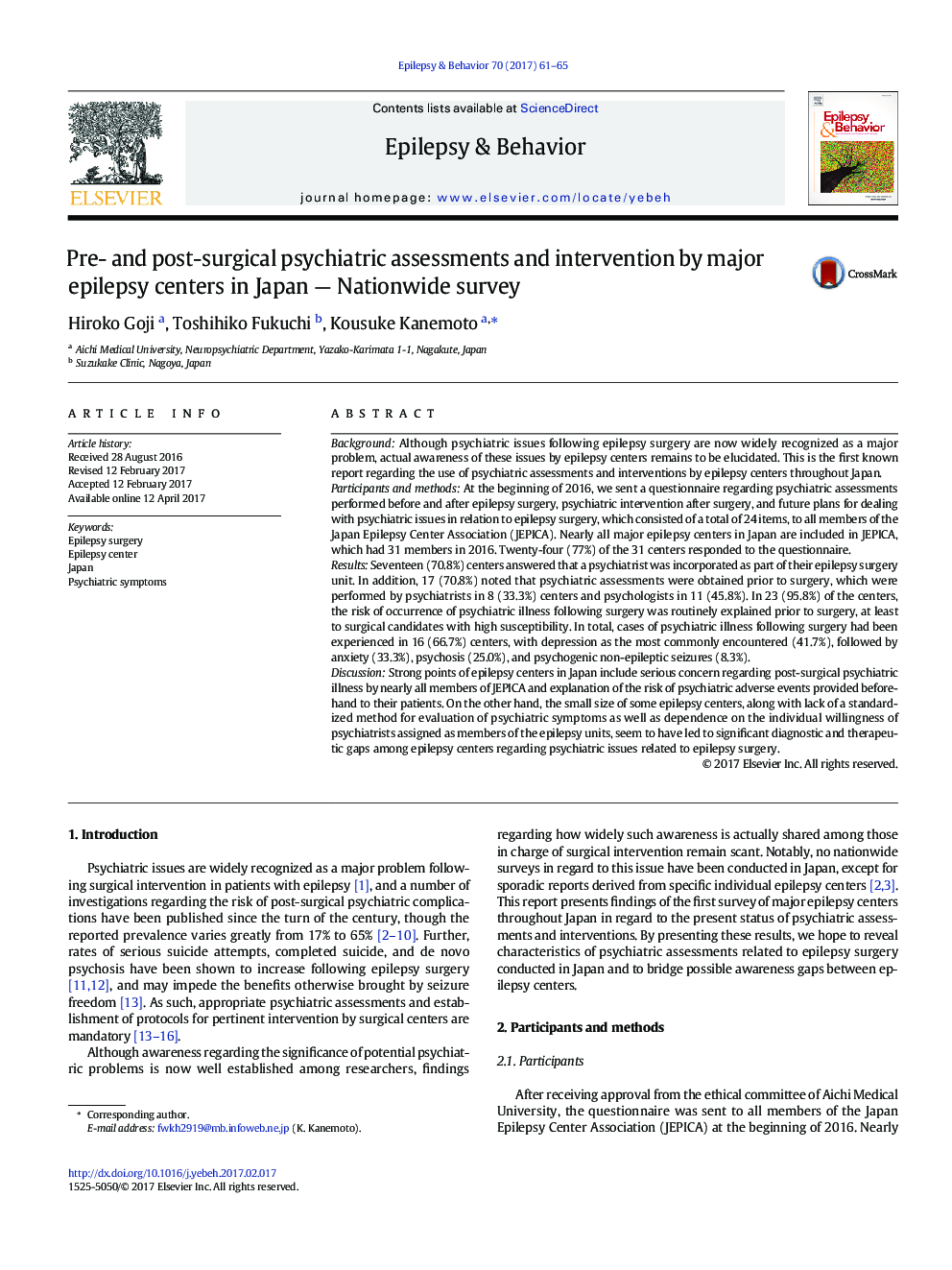| Article ID | Journal | Published Year | Pages | File Type |
|---|---|---|---|---|
| 5628287 | Epilepsy & Behavior | 2017 | 5 Pages |
â¢A questionnaire about psychiatric issues related to epilepsy surgery was sent to major epilepsy centers in Japan.â¢Twenty-four (77%) of 31 centers responded.â¢Seventeen (70.8%) centers have incorporated a psychiatrist as part of their epilepsy surgery unit.â¢No psychiatric assessments prior to surgery are performed at 7 (29.2%) centers.â¢In 23 (95.8%) of the centers, the risk of post-surgical psychiatric illness is explained prior to surgery.
BackgroundAlthough psychiatric issues following epilepsy surgery are now widely recognized as a major problem, actual awareness of these issues by epilepsy centers remains to be elucidated. This is the first known report regarding the use of psychiatric assessments and interventions by epilepsy centers throughout Japan.Participants and methodsAt the beginning of 2016, we sent a questionnaire regarding psychiatric assessments performed before and after epilepsy surgery, psychiatric intervention after surgery, and future plans for dealing with psychiatric issues in relation to epilepsy surgery, which consisted of a total of 24 items, to all members of the Japan Epilepsy Center Association (JEPICA). Nearly all major epilepsy centers in Japan are included in JEPICA, which had 31 members in 2016. Twenty-four (77%) of the 31 centers responded to the questionnaire.ResultsSeventeen (70.8%) centers answered that a psychiatrist was incorporated as part of their epilepsy surgery unit. In addition, 17 (70.8%) noted that psychiatric assessments were obtained prior to surgery, which were performed by psychiatrists in 8 (33.3%) centers and psychologists in 11 (45.8%). In 23 (95.8%) of the centers, the risk of occurrence of psychiatric illness following surgery was routinely explained prior to surgery, at least to surgical candidates with high susceptibility. In total, cases of psychiatric illness following surgery had been experienced in 16 (66.7%) centers, with depression as the most commonly encountered (41.7%), followed by anxiety (33.3%), psychosis (25.0%), and psychogenic non-epileptic seizures (8.3%).DiscussionStrong points of epilepsy centers in Japan include serious concern regarding post-surgical psychiatric illness by nearly all members of JEPICA and explanation of the risk of psychiatric adverse events provided beforehand to their patients. On the other hand, the small size of some epilepsy centers, along with lack of a standardized method for evaluation of psychiatric symptoms as well as dependence on the individual willingness of psychiatrists assigned as members of the epilepsy units, seem to have led to significant diagnostic and therapeutic gaps among epilepsy centers regarding psychiatric issues related to epilepsy surgery.
